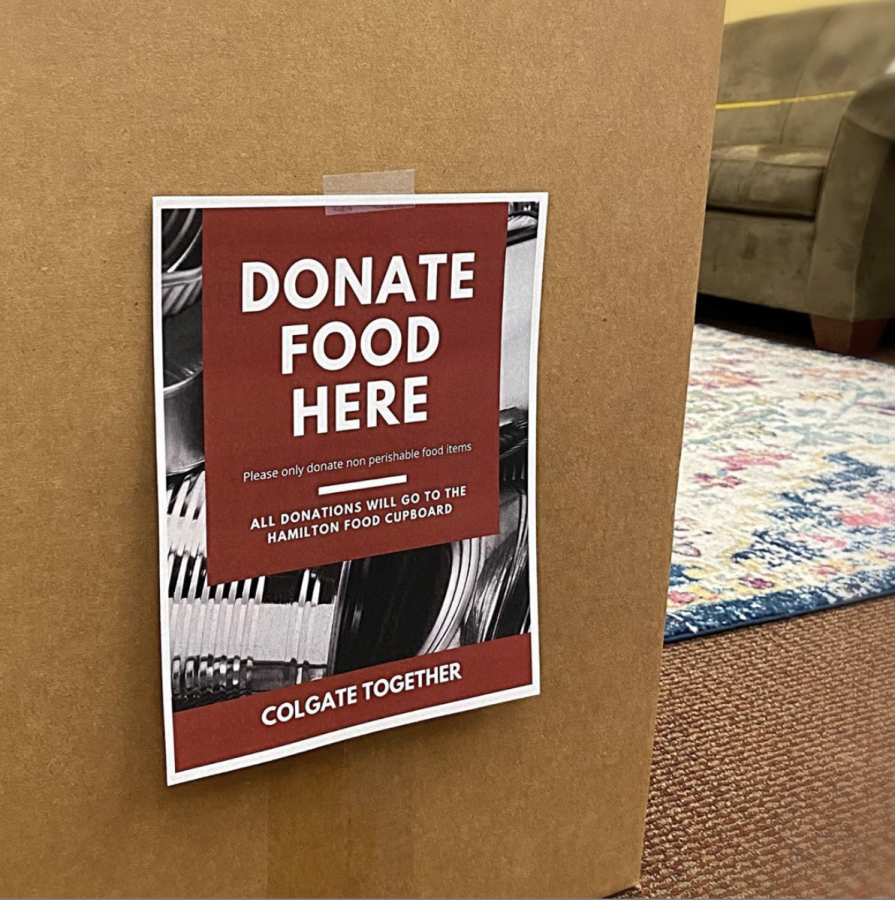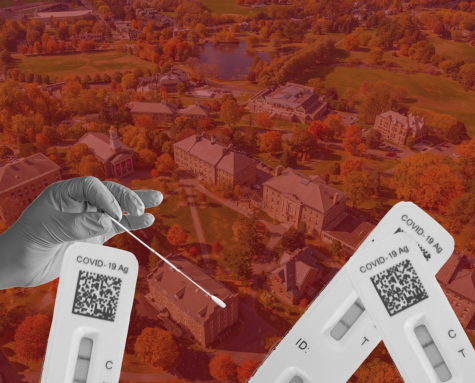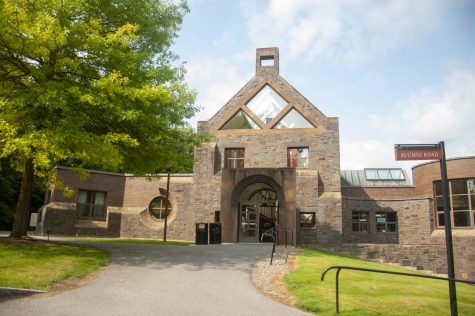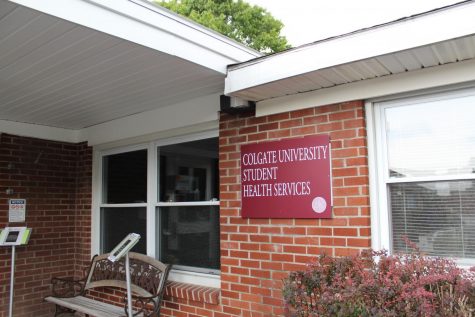Food Waste Remains A Major Problem Across Campus With COVID-19 Related Health Concerns
Changes to Colgate’s Dining Services caused by the COVID-19 pandemic have contributed to campus-wide concerns about the amount of food waste produced. Further, plastic waste has been anticipated to rise dramatically throughout the Fall 2020 semester because of changes implemented to prioritize safety and mitigate the spread of the virus.
The issue of food waste is now top-of-mind for many students—especially those who opted for the meal delivery service during Gate 0 and those with access to kitchens in their respective residential spaces. Among them is junior Colin Duncan, a townhouse resident, who expressed concern in regards to the massive amounts of food waste occurring throughout the two-week quarantine.
“The amount of food waste is ridiculous,” Duncan said. “There’s so much leftover garbage from the paper bags and the plastic containers that it starts piling up, and we end up taking multiple trips to the dumpster a day.”
Despite this, sustainability remains a top priority for Colgate as outlined in the Third-Century Plan.
“Colgate must continue to mitigate its impact on the climate and strive to be a model of environmental sustainability,” section IV of the plan states.
Mitigating the impact of food waste directly correlates to the University’s overall footprint and level of sustainability. Pamela Gramlich, Assistant Director of Sustainability and program coordinator for Environmental studies, emphasized the role food waste plays in reducing climate impact.
“Reducing food waste is one of the top things we can do to combat climate change…Every time food is thrown away, the energy, materials and money put into getting food to your plate are also wasted,” Gramlich said. “During the quarantine, it was challenging to reduce food waste, however, you now have the option to take only what you need from the dining facilities.”
With food waste continuing to be a problem at Colgate and the current resurgence of the issue, some students have been working to take action to minimize the negative effects of wasting mass quantities of food while simultaneously benefiting the surrounding community of Hamilton.
A student-leader with the Colgate Hunger Outreach Project (CHOP), junior Libby Lindstrom helped implement a donation program of non-perishable food items to the Hamilton Food Cupboard and the Hamilton Friendship Inn.
“Since we can’t volunteer in person this year, we thought this would be a good way to stay involved. The silverware can be donated to the Friendship Inn’s takeout they’ve been doing this semester and the unopened cookies, fruit cups and chips are going to be included in the lunch program Suzanne at the Food Cupboard does for the local students,” Lindstrom said.
In addition to the organized initiative through CHOP, individual students have felt motivated to take action of their own. Junior Emily Paytas also found the issue of food waste to be extremely concerning and it motivated her to reach out to the Hamilton Food Cupboard with hopes of being able to provide food to those in need.
“I saw how much food was being thrown away in our own townhouse and knew food was being wasted in the houses nearby too. I had a feeling other people were noticing and felt that if I reached out, they would be on board,” Paytas said.
With these concerns, Colgate has been working with Chartwells to create thoughtful and careful solutions to the problem of food and plastic waste, while also prioritizing the health and safety concerns associated with COVID-19. In response to the pandemic, the University has limited the capacity of each of the dining locations and made to-go options readily available. The increased amount of to-go options correlates directly to an increase in the use of plastic or to-go containers. As indicated on the University’s web page, there have been significant updates across campus, including the use of compostable packaging across the dining locations.
Despite these updates, students still find themselves concerned over the recent changes made and the lack of awareness surrounding food waste on campus.
“I think there is still a lot to be done in regards to making sustainability a priority for everyone on campus and in our community,” sophomore Lauryn Johnson said.
Nicole Dienst is a senior from Westport, CT, studying English, economics and environmental studies. Prior to serving as Executive Editor, she has held...











